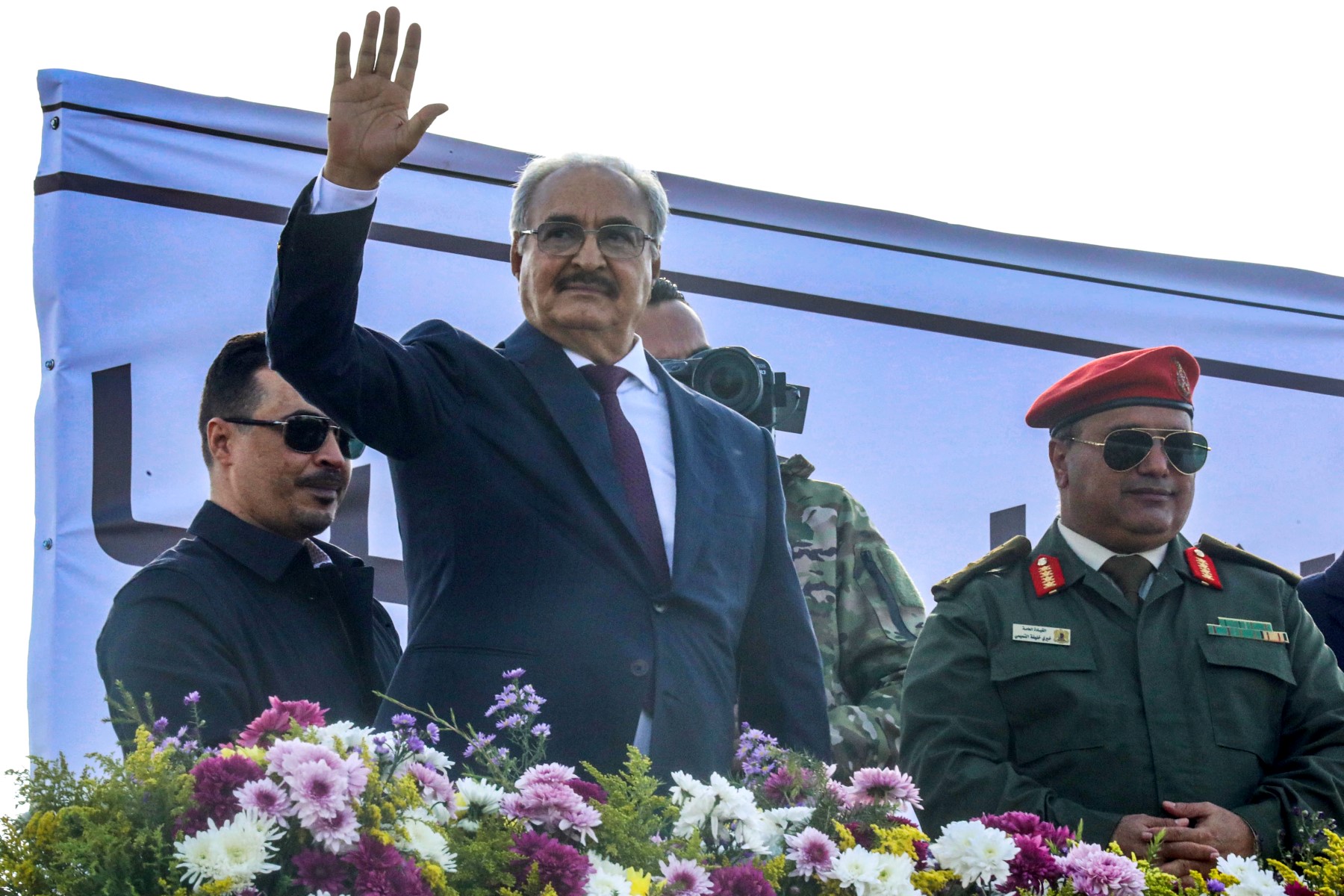BENGHAZI, LIBYA – Libyan military strongman Khalifa Haftar, who backs the politically-split country’s eastern administration, has threatened military action unless oil revenues are divided fairly by the end of August.
The country sits on Africa’s biggest oil reserves but the wedge between the eastern government and a United Nations-recognized administration in Tripoli has hampered Libya’s efforts to sharply ramp up output in response to a surge in European demand for non-Russian oil and gas.
In late June, Oussama Hamad, who heads the eastern administration, threatened to block oil and gas exports from territory under its control, claiming the Tripoli administration was wasting energy revenues.
In an address to his officers on Monday, Haftar said a committee must be established “to put in place financial arrangements with a view to fair management of public funds” and oil revenues.
Speaking in Rajma near Benghazi, Haftar announced “a deadline at the end of August for this committee to complete its mission”.
If it doesn’t, “the armed forces will be ready for orders when the time comes,” Haftar said without giving further details.
Crude is the main revenue source for Libya, which has been torn by more than a decade of stop-start conflict, involving foreign powers and a myriad of militias, since a NATO-backed revolt toppled strongman Moamer Kadhafi in 2011.
Oil revenue is managed by Libya’s National Oil Corporation and central bank, both based in Tripoli.
Pro-Haftar forces have in the past blockaded Libyan oil fields, including between April and mid-July last year.
Groups close to the eastern camp disrupted operations at six oil fields and export terminals over demands for a more “equitable distribution” of hydrocarbon revenues.
Oil production fell to around 400,000 barrels of crude per day.
NOC chairman Farhat Bengdara said late last year that Libya aims to raise its oil output from around 1.2 million barrels per day to 2.0 million bpd by 2027.

